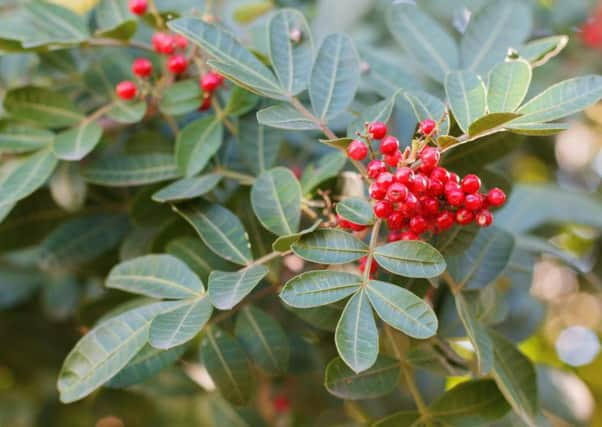Rainforest berry to help win battle against deadly superbugs


US researchers have found that Brazilian peppertree berries, used by traditional South American healers to treat skin complaints, have the power to fight off dangerous infections such as MRSA.
The discovery has raised hopes that the berry could play a vital role in tackling the vicious bugs that are increasingly able to survive the traditional antibiotics created to kill them.
Advertisement
Hide AdAdvertisement
Hide AdAntibiotic-resistant infections cause an estimated 700,000 deaths a year worldwide and are forecast to be killing 10 million people annually by 2050.
The Department of Health estimates that 5,000 people die in the UK from antimicrobial-resistant superbugs, although some experts believe the true figure is around 12,000.
“Traditional healers in the Amazon have used the Brazilian peppertree for hundreds of years to treat infections of the skin and soft tissues. We pulled apart the chemical ingredients of the berries and systematically tested them against disease-causing bacteria,” said Cassandra Quave, of Emory University in Atlanta, Georgia.
She found that chemicals extracted from the berries inhibited the formation of skins lesions in mice infected with Staphylococcus auereus, also known as MRSA – a bacteria that causes skin infections and is resistant to antibiotics.
The extract did not harm the skin tissue of the mice or the normal, healthy bacteria found on the skin. The berry compound works more effectively than existing antibiotics by “disarming not destroying” the bugs, the researchers said.
Rather than trying to kill the bacteria, the compound works by repressing a gene that allows its cells to communicate with one another.
By stopping the bacteria cells from talking to each other, the berry extract prevents them from ganging up to attack the human body.
“It essentially disarms the MRSA bacteria, preventing it from excreting the toxins it uses as weapons to damage tissues.
Advertisement
Hide AdAdvertisement
Hide AdThe body’s normal immune system then stands a better chance of healing a wound,” said Dr Quave.
The Brazilian pepper tree, or Schinus terebinthifolia, is native to South America but thrives in subtropical climates.
It is abundant in much of Florida and has also crept into parts of Alabama, Georgia, Texas and California.
The tree is sometimes called the Florida holly or broad leaf peppertree and forms dense thickets that crowd out native species.
The research into the healing properties of the Brazilian peppertree is published in the journal Scientific Reports.
Last year, the United Nations said antibiotic-resistant infections represented a “fundamental threat” to global health and safety.